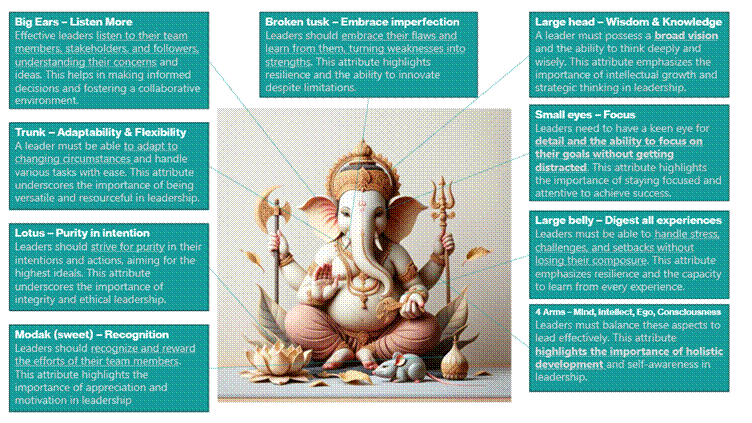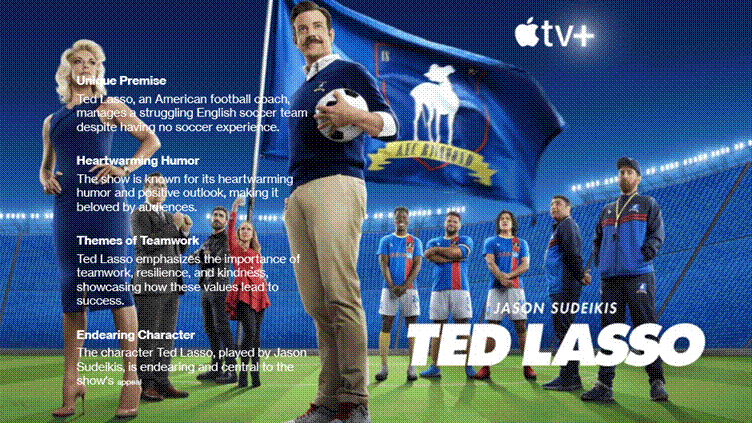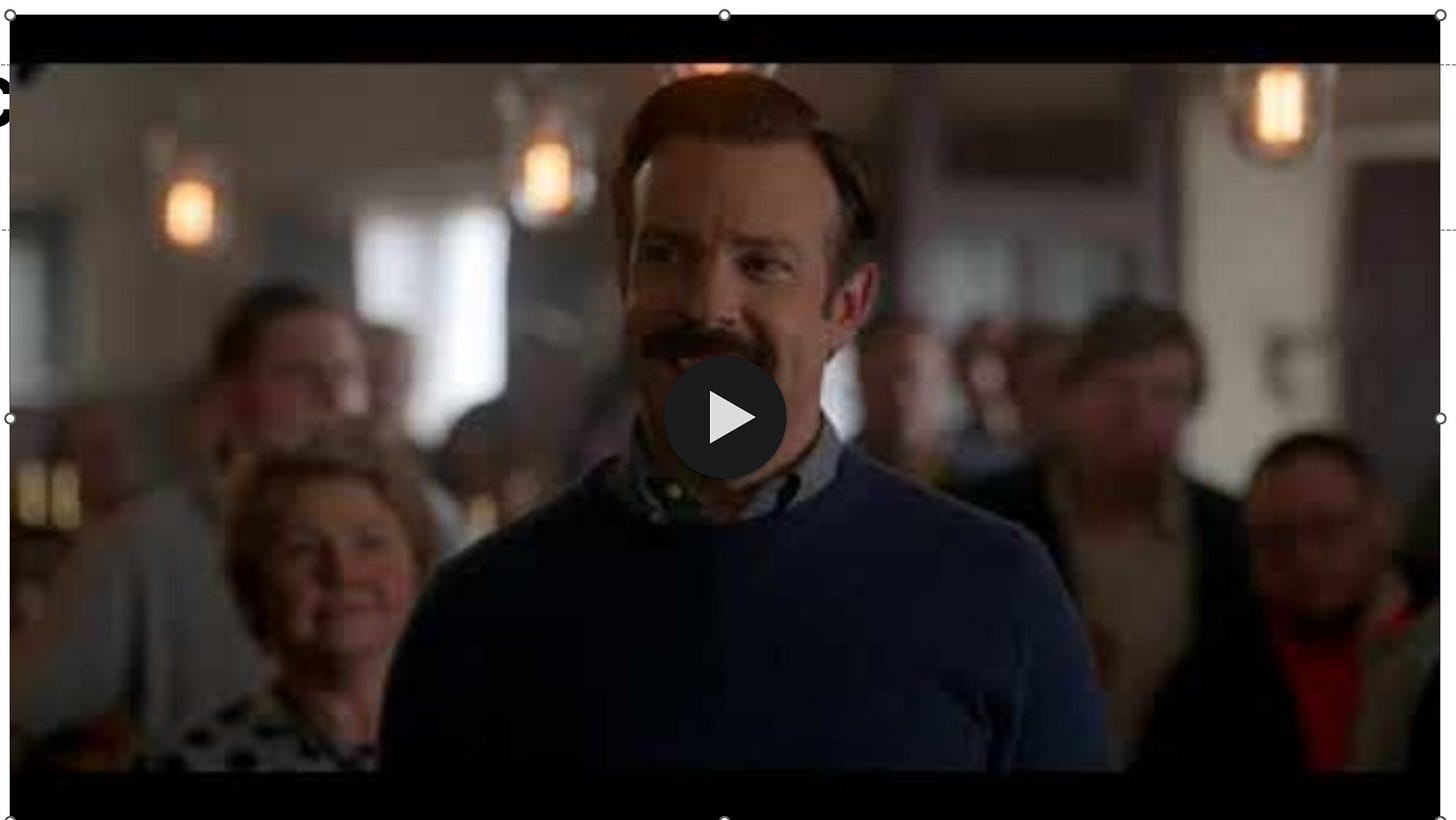"Be curious, not judgmental": Examining timeless leadership principles from Hindu mythology to Ted Lasso
Join us for a journey through time as we uncover the enduring principles of leadership from two seemingly disparate sources: the ancient wisdom of Hindu mythology and the modern charm of Ted Lasso
Throughout human history, the essence of leadership remains rooted in timeless principles. Last week I had the honor of presenting a session on leadership to the global audience at Microsoft. During the session, we led a powerful exploration of leadership through two seemingly unrelated lenses: the ancient symbolism of Hindu mythology and the modern storytelling of Ted Lasso. What emerged was a compelling narrative that connected centuries-old wisdom with contemporary challenges, offering leaders a roadmap to lead with empathy, adaptability, and purpose.
Leadership Is a Mindset, Not a Title
Leadership is not confined to roles or ranks, it’s a mindset. We emphasized that true leadership begins with intent. Whether you’re mentoring a peer, guiding a team, or influencing a community, your ability to listen deeply, act with empathy, and remain curious defines your impact.
It reminded us that leadership is about being the change maker, not just managing tasks. It starts with asking “why,” listening before reacting, and embracing the journey of learning rather than the illusion of knowing it all.
Ancient Wisdom: Leadership Lessons from Lord Ganesha
We begin our journey with Hindu mythology, which is a rich tapestry of stories, each designed to teach enduring values. Specifically, we explored Lord Ganesha, the beloved deity known as the “Remover of Obstacles,” who embodies several symbolic traits every leader can learn from:
· Large Head – Wisdom and Learning: Adopt a “learn-it-all” mentality instead of “know-it-all.” Continuous learning and broad vision are foundational for high-impact leadership.
· Big Ears – Listening: Listen more than you speak. True understanding and responsiveness come from genuinely hearing team members and stakeholders.
· Small Eyes – Focus: Mindful focus—knowing when to zoom in and out—ensures goals aren’t lost amid everyday distractions.
· Trunk– Adaptability: Be flexible. Just as a trunk adjusts to its needs, leaders must adapt their style to each situation.
· Large Belly – Embrace Experiences: Digest both the successes and the setbacks, turning challenges into learning opportunities.
· Lotus – Purity of Intention: Lead with integrity and clear purpose. Actions should be rooted in pure intentions.
· Four Arms – Mind, Intellect, Ego, and Consciousness: Balance these four aspects for holistic leadership; self-awareness underpins meaningful influence.
· Modak (Sweet) – Recognition: Regularly recognize and reward effort—small gestures of appreciation motivate teams.
· Broken Tusk – Embrace Imperfection: Turn flaws into strengths. Imperfection is an opportunity for growth and innovation
Modern Wit: Leadership Lessons from Ted Lasso
Next, we connected the heartwarming humor of Ted Lasso with timeless leadership principles. The show, centered around an American football coach managing a struggling English soccer team despite having no experience in the sport, offers a treasure trove of leadership insights that resonate deeply in today’s workplace.
1. Everyone Is Worthy of Your Attention
Ted Lasso’s first interaction with Nate, the kit man, sets the tone. Instead of walking past him, Ted stops to greet him, signaling that every role matters. Arbindo emphasized that leaders communicate their values through what they choose to pay attention to. Inclusion begins with acknowledgment.
2. Learn People’s Names
Ted doesn’t just hear Nate’s name, he remembers it and uses it. This simple act of recognition builds trust and shows respect. It highlighted that remembering names is a deliberate act of care, reinforcing identity and belonging.
3. Invest in Relationships
Ted asks Rebecca, the team owner, about her favorite concert, not to gain leverage, but to connect. It pointed out that non-transactional relationships foster deeper trust. Leaders who take time to understand their team’s backstories build influence organically.
4. Leverage Rituals to Build Camaraderie
Ted’s daily biscuit ritual with Rebecca becomes a bonding moment. I shared how our own team has a 30-minute daily ritual to share stories and connect. Rituals create cultural glue, fostering psychological safety and team cohesion.
5. Family First—Always
When Ted’s family arrives mid-practice, he prioritizes them without hesitation. We linked this to Microsoft’s leadership principle: Model, Coach, Care. Leaders who visibly prioritize family empower their teams to do the same, reinforcing a culture of work-life balance.
6. Strong Teams Learn and Win Together
Ted benches a star player for unsportsmanlike behavior, even at the risk of losing the game. It emphasized that team culture trumps individual brilliance. Humility and shared growth are the engines of sustainable success.
7. Make Others Look and Feel Good
Ted invites Nate to a gala, making him feel special. When Nate arrives early and feels awkward, Ted eases the tension by asking for his advice. It noted that leaders should see potential in others, not just performance. This builds future leaders and inclusive teams.
8. Be Open—Good Ideas Can Come from Anywhere
Ted encourages Nate to share a strategy idea, despite his junior role. Arbindo connected this to Lord Ganesha’s big ears, symbolizing the importance of listening. Leaders must create a level playing field where ideas are valued regardless of hierarchy.
9. Play Like a Child
Ted joins kids in a playground challenge and lets a waiter choose his dinner. It emphasized that playfulness fuels creativity. Leaders who embrace curiosity and experimentation foster innovation and joy. “Leadership without play is merely management,” he said.
10. Don’t Take Yourself Too Seriously, Be Vulnerable
Ted admits to not knowing about relegation during a press conference. His honesty disarms a hostile journalist. Arbindo highlighted that vulnerability builds authenticity. Leaders who say “I don’t know” open the door to learning and connection.
Be curious, not judgmental
We ended the session with a short video from Ted Lasso. If you have made this far, I highly encourage you to invest 4 minutes of your time in watching this video. It wraps up the session with one simple lesson - Be curious, not judgmental!
Click on this link for the video - Ted Lasso - Be Curious, Not Judgmental
Click on this link for the video - Ted Lasso - Be Curious, Not Judgmental
These lessons from Ted Lasso are not just entertaining, they are transformative. This session showed how storytelling can illuminate leadership principles that are both practical and profound. By embracing empathy, curiosity, and humility, leaders can build cultures where people thrive.
Practical Strategies for Leaders
The following were the key takeaways:
· Pause Before Responding: Strategic thinking starts with reflection.
· Use the “Five Whys”: Dig deeper to uncover root causes.
· Create Psychological Safety: Intentional rituals and permission to fail build trust.
· Balance Speed and Ethics: Innovation must align with values.
· Model, Coach, and Care: Microsoft’s leadership principle in action.
Closing Reflections
Leadership is not about knowing it all, it’s about learning it all. Whether through ancient stories or modern sitcoms, the principles remain the same: listen deeply, lead with purpose, and never stop growing.
This session reminded us that leadership is a journey of curiosity, empathy, and courage. By bridging ancient wisdom with modern wit, we can cultivate practices that resonate across cultures, generations, and industries.
Let’s be the leaders who inspire change, build trust, and make others feel seen.



